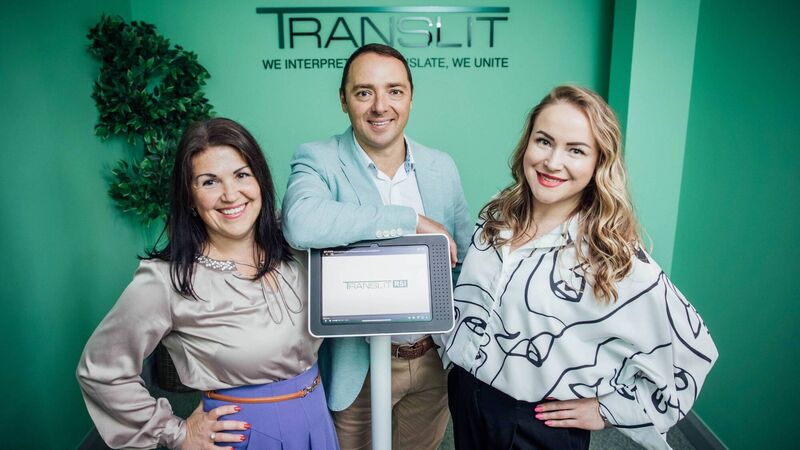Limerick's Translit rolls out interpreters on wheels

Founder and CEO of language services provider, Translit, Alex Chernenko (centre) with Tatsiana Skrabatun (left), finance director and Julija Tihonova, key account manager showcasing the ‘Interpreter on Wheels’. Picture: Brian Arthur
Limerick translation firm Translit is rolling out a new interpreter-on-wheels service for medical facilities in Ireland.
The device is the first of its kind in Ireland and provides 24/7 access to live video interpretation in more than 200 languages, making it useful in many settings where language can be a barrier to communication, including healthcare and immigration.











